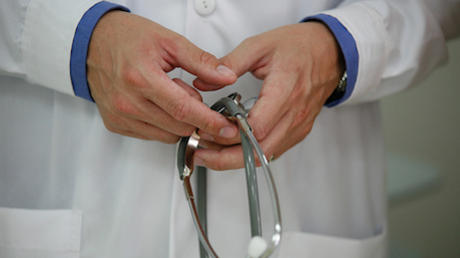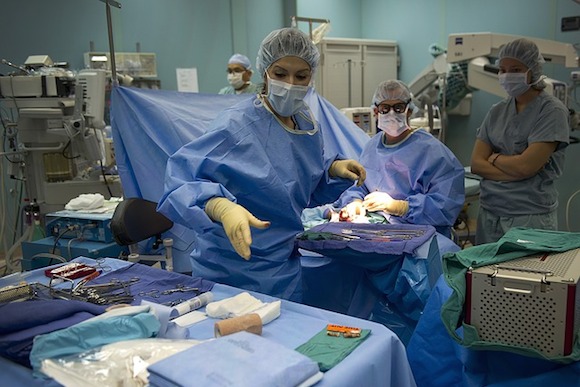Prevention is better than cure. This is a value that is explicit in the Labor and Greens party policy statements – it also features in the Liberal party’s. Declared 500 years ago by Erasmus, it has become a widely accepted rule. When it comes to health, it is difficult to dispute that avoiding suffering is more desirable than curing it. We say it, we may even believe it, but do we practice it?
The data would tell us that we don’t. At a national level we only contribute somewhere between 1.5 and 3 per cent of our health budget to public health (the art and science of preventing disease and promoting health). According to the Australian Institute for Health and Welfare (AIHW), expenditure on medications, medical services and public hospital services absorbed 90 per cent of increases in overall health expenditures 2007/8 - 2010/11 while spending for public health decreased. Following the recent change of government at the federal level the Australian National Preventative Health Agency was closed and even more remarkably, more than $360 million over four years was removed from the National Partnership agreement on prevention with the states.
We have witnessed some spectacular success in improving our collective health - by community-wide prevention approaches. These have been most visible in tobacco-related disease, road trauma prevention and drink driving reduction. But equally skin cancer prevention, vaccine preventable diseases, cardiovascular disease, sudden infant death syndrome (SIDS) and HIV/AIDS control.
We do best where successive governments don’t tear down previous governments’ policies, but instead work out ways of developing non-partisan policies and programs. Two great examples exist in Victoria. First, the role of Dick Hamer and Arthur Rylah (Liberal) in the introduction of seat belts (a world first). The second was 17 years later when David White (Labor, along with Mark Birrel – Liberal) drove the introduction of dedicated tobacco taxes to replace harmful tobacco sponsorship of sport and arts organisations in Victoria through the establishment of VicHealth. This was another world first – driven by highly persistent, skilled and energetic leaders over many years.
Evaluations of the economic value of these programs show they have profoundly beneficial returns to government, let alone to society as a whole. The real value of prevention of tobacco-related diseases and road trauma can be measured in billions. They are the “blue-chip” investments in health.
We have yet to develop a sophisticated level of non-partisan agreement and long-term policy coherence in Victoria in two areas of great importance, namely alcohol-related harm, and in conditions such as diabetes and obesity related to poor diet and physical inactivity.
If you want to know if we still have a major alcohol problem, ask the people at the front line – doctors and nurses in our emergency departments and the police on the streets.
Recently the Foundation for Alcohol Research and Education (FARE) asked the four major parties in Victoria to respond to questions on the ten key evidence-based policy measures to prevent alcohol-related harm to gauge their level of support for effective reform.
The Greens supported eight of the measures, and showed partial support for the remaining two. But both the Liberal National Coalition and Labor indicated commitment to only one out of the ten policy measures proposed by FARE.
This suggests that Victoria may make little progress in combatting alcohol-related harm. Overall in Australia we have made some progress with AIHW data released recently showing that many young people are delaying their first drink. The Medical Journal of Australia has revealed that the average age at which young people first tried alcohol rose from 14.4 to 15.7 years between 1998 and 2013.
Positive trends in alcohol use were also seen in the overall population. In 2013, fewer people drank alcohol in quantities that exceeded lifetime risk. This is good news, but if you want to know if we still have a major alcohol problem, ask the people at the front line – doctors and nurses in our emergency departments and the police on the streets.
In the same Medical Journal of Australia, a new research report showed that alcohol-related presentations “are taking up an inordinate amount of emergency department (ED) resources”. The research surveyed more than 100 emergency departments and found that 14 per cent of presentations were alcohol-related. At 10 hospitals, alcohol-related cases made up more than a third of presentations.
The authors go on to say that there is an “important reality that alcohol misuse also has a significant impact on the health care system”. As alcohol-related harm is an entirely preventable condition, and because hospitals in multiple jurisdictions report more than a third of their ED workload is due to this single cause, the authors “contend that this represents a strong case for preventive public health interventions as a key component of a broad policy response to this issue.”
The other group calling for reform is the police. They spend so much of their time on preventable alcohol-related street offences. According to Andrew Scipione, the NSW Police Commissioner, alcohol and its effects takes up about 70 per cent of a frontline police officer's time, and costs the equivalent of 1000 police salaries in NSW. It is unlikely to be very different in Victoria.
The other key health area requiring attention is the growing problem of obestiy. As mentioned, the Federal Government has torn out hundreds of millions of dollars from community based obesity prevention programs across Australia. In many states this means major declines in prevention spending, but to his great credit the current Minister for Health David Davis has protected investments in prevention and has developed and funded Healthy Together Victoria.
This operates across Victoria and includes a concentrated community-level trial in 12 Healthy Together Communities. It is a prevention platform, which delivers multiple strategies, policies and initiatives at state and local levels where people live, love, learn, work and play. This includes more than 2,000 schools, 2,600 early childhood services and thousands of medium to large workplaces.
Mr Davis has also committed to funding the groundbreaking Live Lighter campaign, which is strongly backed by Cancer Council Victoria and the National Heart Foundation.
These initiatives must continue – no matter who wins the election. The Liberals have committed to both these important initiatives. If Labor wins it would be great not only to give credit to the previous government and Minister, but to ensure ongoing funding and support – so we actually practice the 'Prevention is better than cure’ mantra.
We need leadership in this area – as voters our short term reflex is to put all the money into treatment, but far-sighted leadership that will make us all healthier requires courage to deal with the inevitable naysayers – the alcohol, tobacco and junk food and drinks industries and those against any notion of government involvement, including those railing against a nanny state. I agree not everything is solved with regulation. It will inevitably come down to a battle of (political) wills, and unfortunately also to a battle of (corporate) cheque-books.
To paraphrase Rob Wittman, we not only want Victoria to become a great place to be sick in, but we also want it to be a great place to stay well.
Rob Moodie is Professor of Public Health at the Melbourne School of Population Health. Prior to this he was the inaugural Chair of Global health at the Nossal Institute. He was the inaugural Director of Country Support for UNAIDS in Geneva from 1995-98, and was CEO of VicHealth from 1998-2007. He chaired the National Preventative Health Taskforce from 2008-2011 and was a member of the Commission on AIDS in the Pacific.





